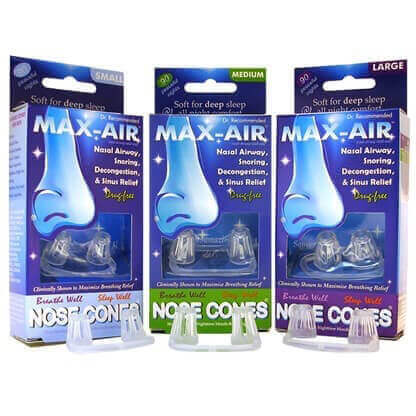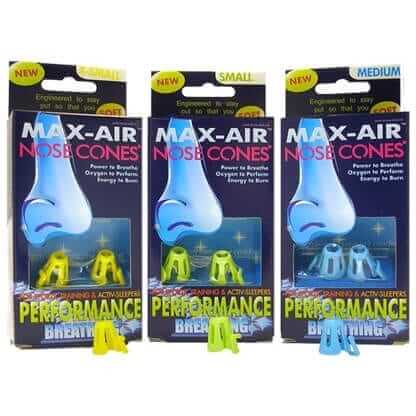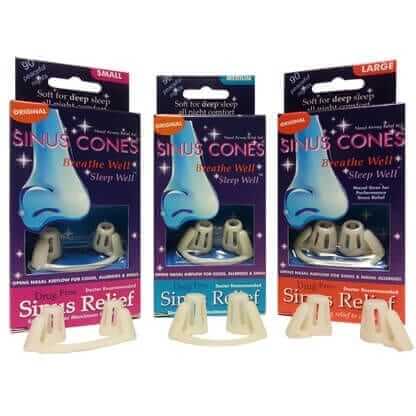CALL: 1-800-797-0361 (M-F 8AM-6PM EST)
How to identify sinus infection symptoms versus nasal allergy symptoms to help you remedy your nasal ailment.
Lots of nasal congestion ailments have similar symptoms, leading to similar states of misery, which is the case with nasal allergies and sinus infections. To treat correctly, you need to know what you’re dealing with, and arm yourself with the proper information and remedies.
Nasal allergy congestion is an inflammatory reaction of the nasal mucosa to an environmental irritant or “allergen”.
Sinus infection (sinusitis) is an inflammatory reaction to an infection in one or more of your sinus cavities, usually due to the little openings in the sinuses, the “ostia” being blocked due to overuse of decongestants.
Symptoms of both conditions can make you feel “stuffed up” and miserable; and, nasal allergy congestion may lead to a sinus infection. So how to tell the difference between nasal allergy symptoms and a sinus infection:
7-Point Check List – Is it nasal allergies or a sinus infection?
- Sinus infections can occur at any time in any season, however, the most common cause of a sinus infection is due to nasal congestion not clearing fast enough, causing the sinuses to block, swell and then infect. Whereas seasonal nasal allergies come on and end with the particular season of allergens.
- Nasal allergies can be very short lived and depend on the duration of time the nasal mucosa is exposed to the allergens, whereas a sinus infection can last at least 14 days and sometimes up to 7 weeks or until the infection has been treated and cleared.
- A stuffy nose and runny eyes are common symptoms to both ailments, but a sinus infection often includes pressure in, or tenderness around, the sinus cavities, a fever, sore throat, or muscle aches.
- Sinus infections often feel like tooth pain, even severe tooth pain, because the roots of the upper teeth are so close to the inflammation of the maxillary sinuses.
- And, though not pleasant to discuss, there’s a difference in mucus. In nasal allergies, mucus is runny and clear in color, whereas with a sinus infection, nasal discharge is thick and discolored, and often has an unpleasant odor.
- Nasal allergy congestion can often be relieved with nasal saline rinses (which literally “wash” the mucosal layer of the nose to clean the allergens out of the nose), and/or over-the-counter remedies, whereas sinus infections commonly require prescribed medications
- Nasal allergy symptoms can be relieved temporarily with antihistamines and decongestants, which dry out the nasal mucosa and mask or limit the natural inflammatory response to the nasal allergen, but sinus infections more commonly require treatment with a combination of decongestants and prescription antibiotic medication
Though seasonal allergies can’t be avoided, their symptoms can be lessened with proper treatment.
Nasal allergy medications are necessary to lessen the runny nose and drainage symptoms of nasal allergies. However, nasal allergy medications can only do so much to lessen the swelling and congestion of nasal allergies. To truly open the nasal airways so that you may breathe easier with less restriction, Sinus Cones can help.
Sinus Cones hold the airway open to optimize nasal breathing relief. So when nasal allergy medications aren’t enough to relieve nasal congestion for sleep try Sinus Cones. The relief may surprise you and make allergy season sleep problems a thing of the past.
Sinus infections can often be avoided by rinsing nasal airways frequently to keep the nasal airways clean, and by using a nasal dilator to optimize nasal airflow, which is key to sinus health.
Sinus Cones are an example of a nasal dilator that provide a natural, drug-free preventative solution that can work along with other remedies or by themselves to heal sinus infections by opening nasal airflow to keep sinuses clear and healthy.
“I used to wake up at 4 a.m. and start sneezing, sometimes for five hours. I tried to find out what sort of allergy I had but finally came to the conclusion that it must be an allergy to consciousness.”
James Thurber – American Author and Humorist




